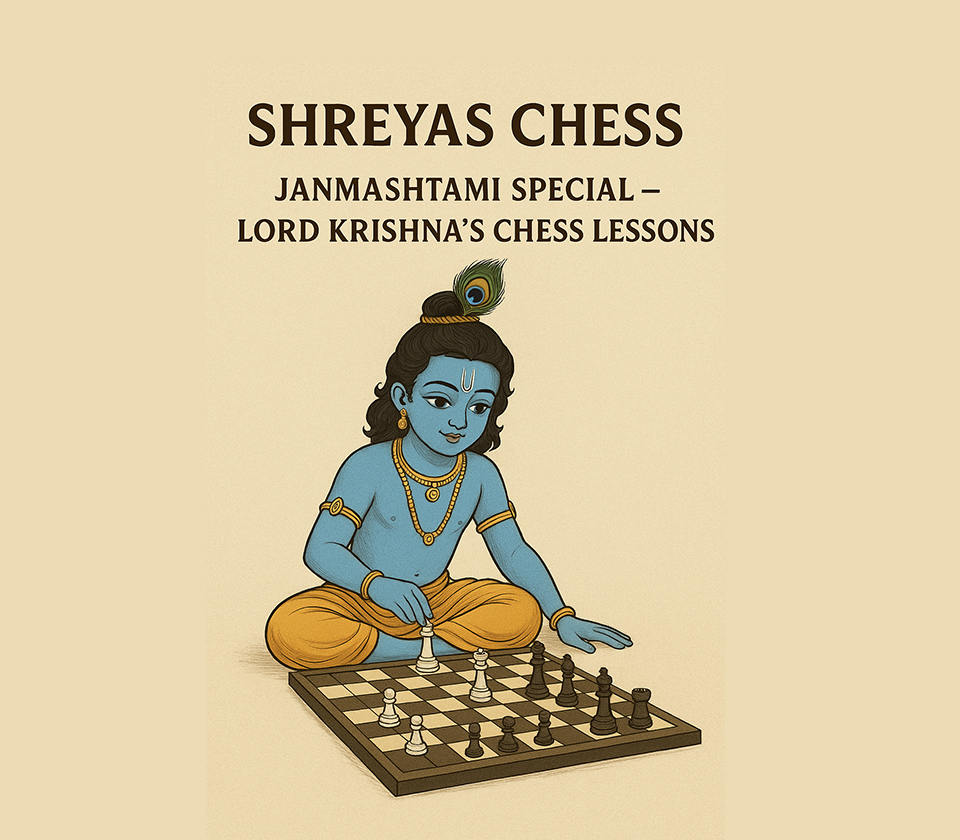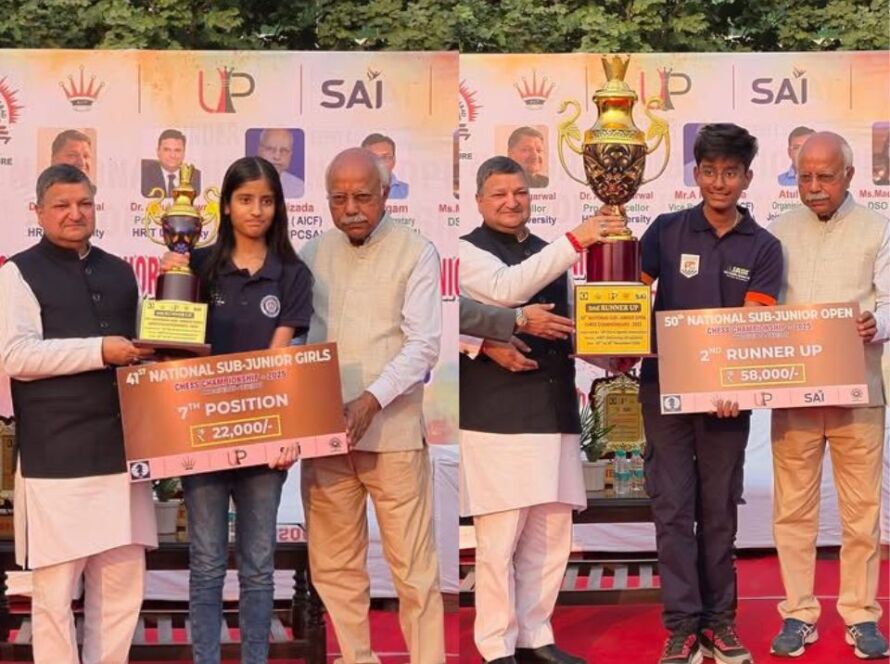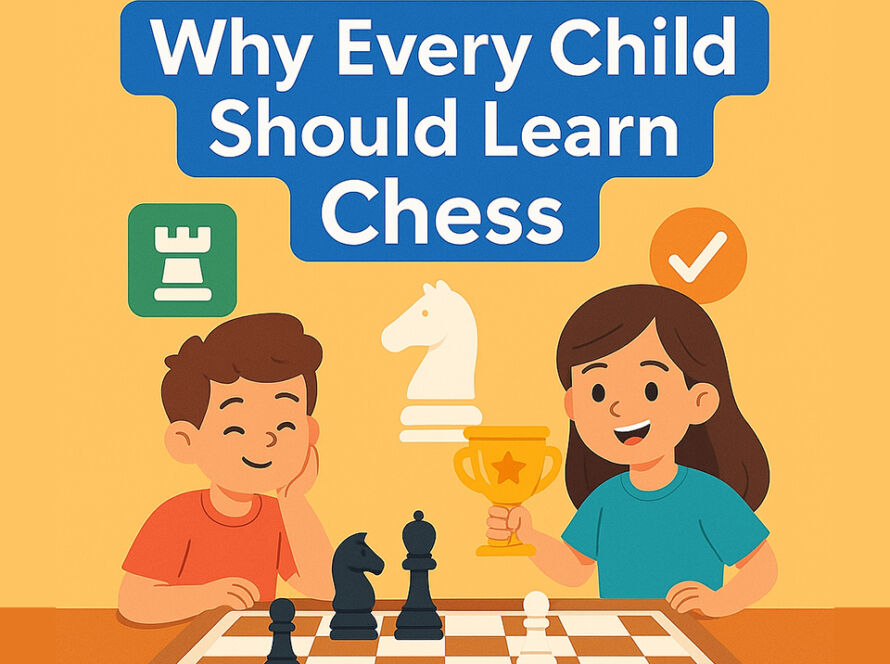Janmashtami Special – Lord Krishna’s Chess Lessons
“Karmanye Vadhikaraste Ma Phaleshu Kadachana” – (You have the right to work only, but never to the fruit of work.) This message from Lord Krishna in the Bhagavad Gita is not limited to the battlefield, but is equally applicable to every aspect of life, including the game of chess. While playing, all we can control is our next move; victory or defeat is just a consequence.
Krishna’s life is a perfect blend of devotion, love, and compassion, as well as exceptional intelligence, foresight, and strategic thinking. Chess is a game that requires not only moving pieces but also thinking, patience, and making the right move at the right time. We can learn many valuable lessons from Krishna’s life that can be applied to the game of chess.
Lessons from Lord Krishna’s Life:
- The Art of Adapting: Krishna changed his strategy according to the situation – sometimes as a charioteer, sometimes as a messenger of peace, and sometimes as a diplomat.
- In chess, it’s essential to adapt your strategy based on your opponent’s moves.
- Effective Use of Resources: Krishna didn’t wield a weapon himself at Kurukshetra but guided Arjuna to victory.
- In chess, it’s crucial to use your pieces effectively, often sacrificing some to protect your king.
- Patience and Timing: Krishna never rushed; he waited for the right moment to act.
- In chess, patience is a vital virtue; rushing can lead to mistakes.
- Avoiding Traps: Krishna outsmarted his opponents, including Shishupala, Kamsa, and Duryodhana.
- In chess, it’s essential to anticipate and avoid your opponent’s traps.
- Endgame Vision: Krishna had the endgame in mind throughout the Mahabharata war.
- In chess, it’s crucial to plan for the endgame from the opening.
- Dharma and Fair Play: Krishna was willing to do whatever it took for dharma, even if it meant unconventional methods.
- In chess, playing fairly and following the rules is essential.
- “Karmanye Vadhikaraste” Focus on the Process, Not the Outcome: Krishna emphasized the importance of doing one’s duty without worrying about the consequences.
- In chess, focus on making the best moves, and the outcome will take care of itself.
Krishna’s life is a strategic guide for chess players. By incorporating his lessons – adaptability, effective resource management, patience, avoiding traps, endgame vision, fair play, and focusing on the process – we can improve our game. This Janmashtami, let’s apply Krishna’s teachings to the chessboard and create a beautiful blend of intellect and dharma.




